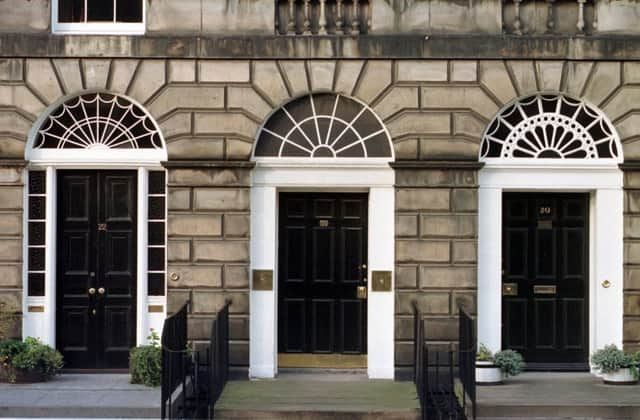Agent fees are cheap but not in Banff and Buchan


It compares the estate agent fees charged to vendors around the UK.
While Banff and Buchan in Aberdeenshire makes it into the top ten list of most expensive places to sell a house in the UK, half of the cheapest areas to sell are in Scotland and include north, south and central Glasgow.
Advertisement
Hide AdAdvertisement
Hide AdThe least expensive area in Scotland for selling a home is East Renfrewshire, which has an average estate agency fee rate of just 0.84 per cent.
In comparison, the average across the UK is a 1.1 per cent fee with London accounting for six of the top ten fee hotspots.
Alex Thorpe, netanagent.com managing director, explains: “No-one will be surprised to hear that London is the most expensive area to sell, but they may raise an eyebrow at a remote spot in Scotland hitting the top ten.
“The costs are easily explained though, and this is something that estate agents often struggle to get across – remote locations can mean a huge geographical area to cover, with increased overheads, and a genuine lack of buyers.
“All of this can equate to a larger workload for an agent, justifying a slightly higher fee.”
To put the fee difference into perspective, a UK property priced at the current UK average asking price of £307,033 will cost £2,210 to sell in Hexham, Northumberland where fees are cheapest, whereas in the Kensington area of London, which has the most expensive estate agents, the same property sale would command an agent fee of £5,004.
What the survey doesn’t point out, however, is the extreme unlikelihood of being able to buy a property in Kensington for the price of an average home in the UK.
Housing benefit tenants are set to lose out on private rented homes as landlords look to occupants less prone to missing rental payments to minimise the impact of last year’s budget resolutions.
Advertisement
Hide AdAdvertisement
Hide AdAccording to the latest research from the National Landlords Association (NLA), six in ten landlords say the Chancellor’s decision to remove mortgage interest relief from 2017 will reduce their profitability.
In order to recover costs, one in five of those landlords say they will need to prioritise other tenants over those in receipt of housing benefit.
These types of tenants are typically viewed as riskier because of high incidences of missing rental payments, caused in part by the widening gap between market rents and the amount of benefit available to claimants.
In the last year, two thirds of landlords with tenants in receipt of housing benefit have experienced rent arrears.
Furthermore, over the past four years, the proportion of landlords who let to tenants in receipt of housing benefit has almost halved, with the trend looking certain to continue.
Richard Lambert, chief executive of the NLA, says: “The removal of mortgage interest relief from 2017, combined with the government’s benefits freeze and the reducing availability of social housing, will create a perfect storm whereby some tenants will struggle to find any sort of housing at all.”